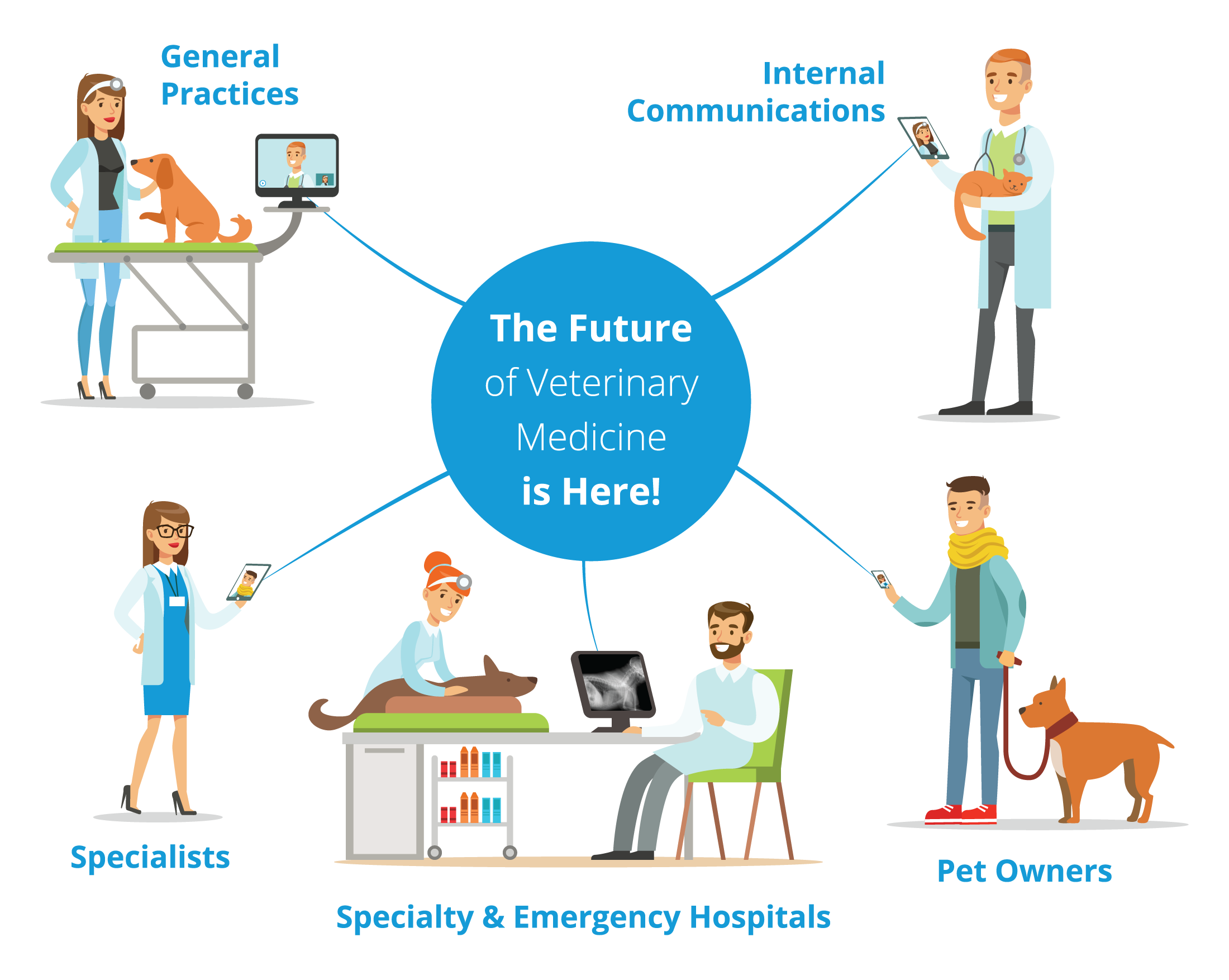Telemedicine is Coming to the Vets: Highlight on VetCareShare
This is the first in a series of telehealth articles to be published on the VetPartners blog site (www.vetpartners.org). Each article in the series will feature a different veterinary telemedicine option, providing valuable insight for veterinary professionals, consultants, and pet owners.
I am not associated with any other telemedicine company and receive no compensation—monetary or otherwise—from VetPartners or telemedicine for authoring this article.
***************************
Innovation is the name of the game in technology – whether it’s new bells and whistles that users can enjoy or more sophisticated “back-up” platforms that operate with more efficiency.
Now telemedicine is getting into the game. There are a number of new ventures to make telemedicine a reality. It’s move into human healthcare was outlined in the book by Dr. Eric Topol of Scripps Research Translational Institute, The Creative Destruction of Medicine.
Now it’s coming to the veterinary business through companies such as Medici, GuardianVets, AirVet, Fuzzy Pet Health’s Fuzzy Connect, and VetCareShare by Elucidate, Inc.
I had the opportunity to learn about VetCareShare during a recent meeting with VetPartners (www.Vetpartners.org), so I’m going to tell you what I learned. (Stay tuned for future blogs about other veterinary telemedicine services.)
The various platforms operate slightly differently. VetCareShare, for example, puts the veterinary hospital, instead of the pet owner, at the center. Communication is enabled among and between pet owners, the pet owner’s vet, and specialty care providers. Only one veterinarian will need to have a subscription to the service in order to bring others in with a virtual introduction or consult. There is no need for any party to download an app or other software since the invitation to join a virtual consult is link based. Through text or email the invite link is shared with the other participants of the call, once the link is clicked, all parties are connected virtually and a specialist or general practitioner can communicate directly with a pet owner, another veterinarian or both.
Sean Field and Jennifer Merritt are the innovators of VetCareShare, which is an example of bringing both new bells and whistles to users, while also creating sophisticated back-end processes. Sean is a technology guru with a number of innovations to his credit in human healthcare, including to help conceive and create one of the first telemedicine solutions while working for Roche Diagnostics in the early 2000’s. Now he is applying his expertise to the veterinary business. His wife, Jennifer, runs the commercialization aspects of the business and “everything else,” drawing upon her previous experience in the human-medical device space.
To the users, VetCareShare is a platform that brings together a number of familiar processes. These include: (1) online video consultations, as we might have experienced through zoom; (2) image and document sharing and transfer, as we might have seen via email or text; and (3) pictures and videos, as seen on email or text, letting the pet-parents know how their pet looks following surgery, for example, – but now with voiceover.
Launched in 2015, the VetCareShare platform provides the ultimate in connectivity. Unlike text or email this platform enables veterinarians to maintain all medical records: pictures, data, and recorded consultations. Behind the scenes, VetCareShare connects peer to peer (P2P), providing users a direct, secure communication channel. Files can be shared securely between participants’ browsers through industry-standard SSL encrypted websockets. They are essentially using the same protocols financial institutions rely on daily to protect sensitive data.
You’ll also be interested to know that VetCareShare’s video consultation feature enables the doctor to capture full-screen video of any practice computer, including lab results and x-rays along with, of course, a voiceover consultation. The veterinarian can also share the video via email or text with the client or another veterinarian and then store it in the pet’s medical record.
When considering telemedicine, security and privacy is a constant concern. VetCareShare has been designed with Version Control Systems (VCS) that secure the veterinarian-client-patient-relationship (VCPR). This VCS will help veterinarians feel more comfortable about offering telemedicine not only to the pet owners but throughout the entire continuum of care.
As an innovator, VetCareShare is continuing to enhance its product. Unlike other forms of communication which are typically one-on-one, VetCareShare is developing the ability to have multiple participants in the “room.” This feature is scheduled to launch late 2020. Stay tuned at https://www.vetcareshare.com.

